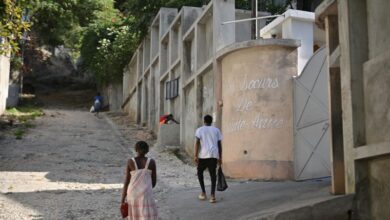San Diego Diocese denies charges that it hid assets to avoid paying child sexual abuse claims

 Photo illustration. / Shutterstock
Photo illustration. / Shutterstock Denver, Colo., Feb 27, 2023 / 12:45 pm (CNA).
The Diocese of San Diego has rejected a lawsuit’s allegations that it restructured diocesan properties to hide assets from sexual abuse victims. The diocese said its restructuring was part of a 10-year effort to establish parishes as separate legal entities.
Irwin Zalkin, a San Diego lawyer who represents about 120 people who have filed sex abuse claims against the diocese, has alleged otherwise. He contends the property transfers were fraudulent and aimed to shield assets that could be used to compensate his clients and other sex abuse victims.
The 2019 legislation known as Assembly Bill 218 significantly extended the statute of limitations for sex abuse lawsuits. It also allowed a three-year retrospective legal window for legal claims that previously fell beyond the legal time limit.
The diocese faces 400 sexual abuse claims dating as far back as the 1940s. The diocese has said if it agreed to settle all the claims the cost could be $ 550 million, funds it does not have.
Zalkin said at a Feb. 22 press conference he will argue that the diocese “waited to see what would happen with this legislation” and then moved assets in order to avoid payouts, the San Diego Union-Tribune reported.
Kevin C. Eckery, director of media and communications for the Diocese of San Diego, told CNA Feb. 24 the diocese’s property reorganization was part of a lengthy, unrelated process.
“Over 10 years ago, long before Assembly Bill 218 was introduced, the diocese began the process of formalizing in civil law the separate legal status of each parish and its assets,” Eckery said. “This included recording proper legal title for each parish to its own real estate.”
“Since the founding of the Diocese of San Diego in 1936, under canon law the assets of each parish have been separate and independent from the diocese,” Eckery said.
According to Zalkin’s lawsuit, filed on Tuesday, the diocese in late 2019 transferred 291 properties into real estate holding companies. The properties include church buildings and land, strip malls, vacant lots, and individual homes owned by the diocese.
Zalkin said that in 2010 the diocese formed 93 separate corporations for each of its parishes. The assets of each corporation are ultimately under the control of the bishop of San Diego.
He said nothing was transferred into these corporations for years. Zalkin said the diocese formed real estate holding companies for each parish in 2018, when the California Legislature was considering legislation to remove the statute of limitations on sex abuse lawsuits. Then Gov. Jerry Brown vetoed the legislation, but Gov. Gavin Newsom signed a subsequent version of the bill, A.B. 218, in October 2019.
The transfers began in September 2019, according to the lawsuit.
Zalkin rejected the diocese’s statement that the property transfer was part of a process to formalize each parish’s legal status and assets.
In 2007, when the Diocese of San Diego declared bankruptcy for the first time, it had argued that parish properties were only held in trust by the diocese, according to Zalkin. He said this argument did not gain traction in legal proceedings and the argument was not fully tested. The bankruptcy was dismissed after a $ 198 million settlement between the diocese and plaintiffs in sex abuse lawsuits.
According to Zalkin, if a court were to cancel the property transfers, there would be at least $ 450 million available for a legal settlement.
The diocese is again considering bankruptcy, citing the potential cost of sex abuse lawsuit settlements. Though a bankruptcy halts any pending lawsuits, Zalkin said his lawsuit would be incorporated into the larger bankruptcy case and then resolved, the San Diego Union-Tribune reported.
Eckery told CNA the diocese has “a profound obligation and moral duty to use its own assets to equitably compensate survivors.” He cited the letter Cardinal Robert McElroy of San Diego sent parishioners earlier this month about possible bankruptcy, in which the cardinal said:
“The sexual abuse of minors by priests and the way it was handled in the life of the Church constitute the greatest sin of our Church in the last century. We must and will continue to protect minors with even deeper vigor, provide healing resources to those who have been abused, and use our diocesan assets to compensate those who were victimized. And we will never forget the harm that we have done.”
San Diego Superior Court Judge Eddie Sturgeon will be handling lawsuits from alleged victims. The first case is scheduled to go to trial in July.
Three bishops have headed the San Diego Diocese since 2010: Bishop Robert Brom, who retired in 2013; Bishop Cirilo Flores, who died in 2014 after less than a year in office; and McElroy, who took office in 2015.
Allegations of unethical or illegal financial transfers have been made against other dioceses that have faced sex abuse lawsuits.
In 2011 attorney Jeff Anderson of St. Paul, Minnesota, who has filed many abuse lawsuits against Catholic dioceses, accused the Archdiocese of Milwaukee of transferring $ 75 million out of its bank accounts. He also inquired about the transfer of a separate $ 55 million into a cemetery trust fund created in 2008.
Cardinal Timothy Dolan of New York, who was a former archbishop of Milwaukee, rejected the claims. In a 2011 response, he said he could not have hidden such a sum given the “rigorous supervision” of the financial council. The $ 70 million belonged to the parishes of the Milwaukee area and were on deposit with the archdiocese, just as the assets of the cemetery trust fund were.





